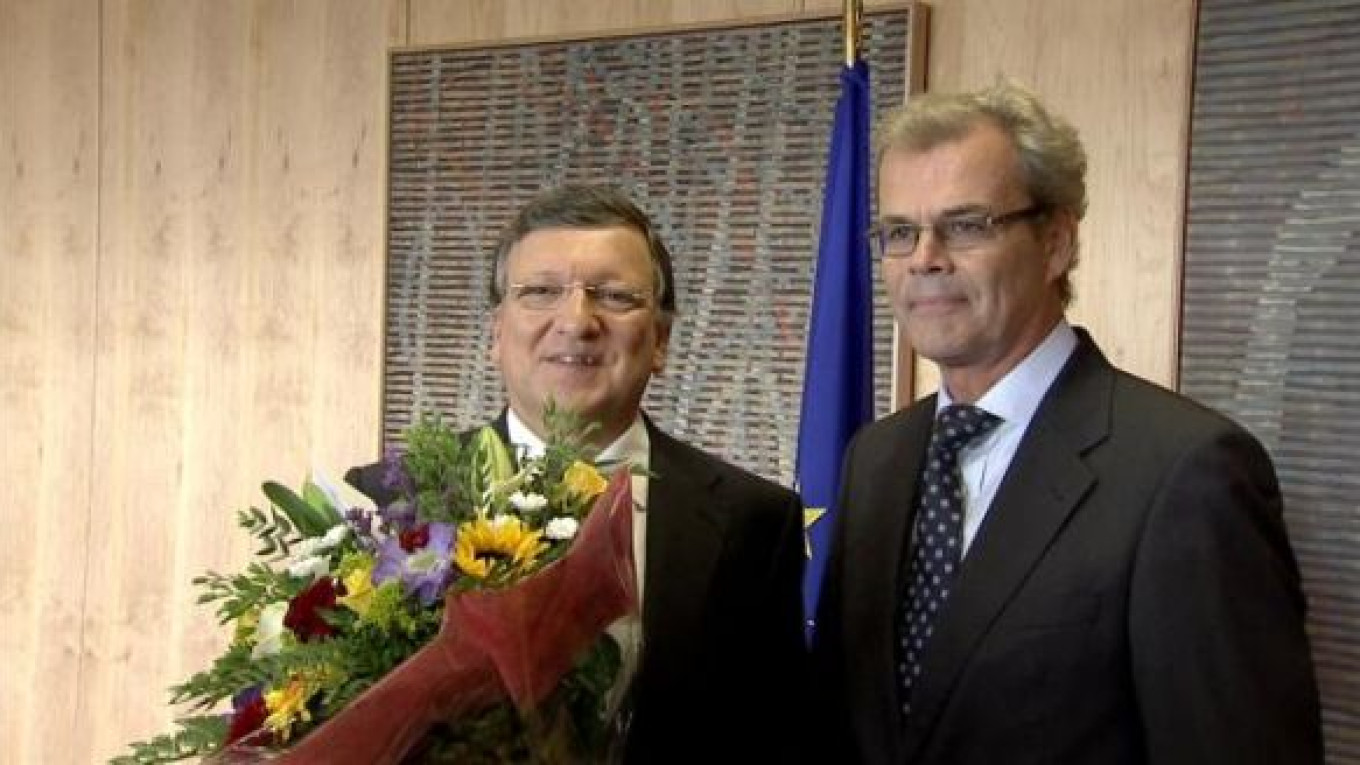Russian human rights activists expressed dismay at the news that the EU will be awarded the Nobel Peace Prize.
"First they give [it] to Obama, then to the European Union. Who is next? Maybe the Shanghai Cooperation Organization," veteran campaigner Lyudmila Alexeyeva quipped to Interfax, referring to a regional security watchdog dominated by Russia and China that is widely seen as ineffective.
U.S. President Barack Obama won the prize in 2009, triggering widespread criticism because he had been in office for only nine months then.
Observers and oddsmakers had said ahead of Friday's announcement of the 2012 prize winner that the Nobel Committee could choose to highlight human rights issues in Russia with the award.
Instead, the committee announced that the prize would go to the European Union for promoting unity on the Continent, in what was seen as an attempt to boost morale amid an abiding debt crisis in member states.
Alexeyeva, who co-founded the Moscow Helsinki Group in 1976 and turned 85 this summer, has been tapped as a potential winner numerous times.
She said that she was not offended by the committee's choice but that it would have been "colossally helpful" if the prize had gone to a Russian activist. She recalled that receiving the 2009 Sakharov Prize from the EU had given her a great deal of encouragement.
"The Norwegian Nobel Committee could have played just such a role. Sadly, it would not do it," she said.
Alexeyeva's comments were echoed by fellow rights campaigner Svetlana Gannushkina, who said the decision was "simply laughable."
Gannushkina, who has also been nominated several times for the prize for her work with Chechen refugees, told Interfax that the prize had been "depersonalized" by going to a bureaucratic structure like the EU.
"The Nobel Committee could have asserted the principles of peace and democracy by giving the prize to those who have worked in this field for many years and now need support," she said.
She also said the decision failed to send a strong signal to the EU, which she said has become "rather indifferent" to human rights and related issues in past years. "They should wake up," she said.
Anna Sevortian, the head of the Moscow office of Human Rights Watch, said that by giving the peace prize to the EU instead of to a nongovernmental group or to political prisoners, the Nobel Committee continued to lower the Peace Prize's significance.
"I would not say it discredits the prize, but it is certainly getting less important for people," she told The Moscow Times.
In a rare show of harmony, a senior pro-government lawmaker joined the rights campaigners in criticizing the choice.
"In my opinion [it] should have been awarded to major public figures for their bravery and nonstandard actions," said Alexei Pushkov, chairman of the State Duma's Foreign Relations Committee and a member of the pro-Kremlin United Russia faction, Interfax reported.
"To award it to an organization for its overall achievements looks unconvincing to me," Pushkov said.
He added that while the decision was probably intended to lift the EU's spirits amid the financial crisis, it was questionable given that the union, in his opinion, no longer can be considered a model for bringing nations together.
Pushkov cited the fact that racist and xenophobic convictions had risen in the bloc in recent years, culminating in last year's massacre in Norway by right-wing extremist Anders Breivik, which claimed 77 lives. Norway is not an EU member, however.
By contrast, a senior EU official in Moscow praised the decision by saying that it would boost the bloc's efforts to strengthen democracy in Russia.
"We are trying to open up civil society, the rule of law and human rights, and one can only hope that this helps our work here," Michael Webb, the deputy head of the EU delegation to Russia, said by telephone.
Webb added that while the delegation's diplomats had not popped open any champagne, they were "of course all very pleased" by the award.
Related articles:
A Message from The Moscow Times:
Dear readers,
We are facing unprecedented challenges. Russia's Prosecutor General's Office has designated The Moscow Times as an "undesirable" organization, criminalizing our work and putting our staff at risk of prosecution. This follows our earlier unjust labeling as a "foreign agent."
These actions are direct attempts to silence independent journalism in Russia. The authorities claim our work "discredits the decisions of the Russian leadership." We see things differently: we strive to provide accurate, unbiased reporting on Russia.
We, the journalists of The Moscow Times, refuse to be silenced. But to continue our work, we need your help.
Your support, no matter how small, makes a world of difference. If you can, please support us monthly starting from just $2. It's quick to set up, and every contribution makes a significant impact.
By supporting The Moscow Times, you're defending open, independent journalism in the face of repression. Thank you for standing with us.
Remind me later.


